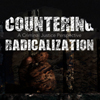
Radicalization
LEMIT and CMIT will present a three-day conference on radicalization, including terrorism, hate groups, and gangs, and how to combat the issue in communities, prison and jails.The Law Enforcement Management Institute of Texas (LEMIT) and the Correctional Management Institute of Texas (CMIT) are teaming up to share information on the radicalization of terrorists, hate groups, and gangs in an effort to build networks to combat the problem in Texas and beyond.
“Countering Radicalization,” a three-day conference scheduled for March 29-31 at the Woodlands Waterway Marriott Hotel & Convention Center, is designed to help law enforcement, intelligence, corrections, probation, and parole agencies understand the radicalization threat and to share information to counter issues at the local and regional levels. The conference will feature experts in the field from international, national and state perspectives in law enforcement and corrections.
“The reason to come together is not only to understand the radicalization process, but how law enforcement, corrections, and the intelligence communities can combat activities in and outside of the country,” said James Senegal, Director of Professional Development at LEMIT.
The conference will highlight the origin, development, and impact of radicalization as well as strategies and interventions used by different agencies to combat the problem. The conference will help create networks of professionals in the criminal justice system to share information and to stop the growth of terroristic groups in their own communities.
“Our focus is on bringing law enforcement, intelligence and correction officials together to become informed about the lessons learned from the speakers and to discuss initiatives and efforts from the federal level as well the state level,” said Doug Dretke, Executive Director of CMIT. “We become better informed which leads to enhanced and improved intelligence and networking to minimize radicalization in our communities and in the criminal justice system.”
Participants can earn up to 16.5 hours of credit from the Texas Commission on Law Enforcement. The registration deadline is March 15, and the cost of the program is $250. Among the speakers scheduled to attend are:
- Nadav Morag, Chair, Department of Security Studies, Sam Houston State University, “Global Trends in the Growth of Radical Extremism”
- Andrew Bringuel II , Counter Violent Extremism, Federal Bureau of Investigation, “Radical Extremism – Emerging Trends in the U.S.”
- Lt. Col. Jeffrey F. Addicott (U.S. Army, Ret.), Director and Professor, Law Center for Terrorism Law, St. Mary’s University School of Law, “Terrorism Law”
- Rupali Jeswal, Terrorism and Intelligence Analyst, Operational Psychologist and Clinical Hypnotherapist, “Radicalization Process, Pathways, Various Roles after Radicalization, Recruitment Process” and “Global Connection of Crime Cartels, Narco Terrorism, Hybrid Gangs in the U.S.”
- Allen Beard, Administrator, Counter Terrorist Branch, Federal Bureau of Prisons, “Countering Inmate Terrorism”
- Supervisory Special Agent Steve Carter , Correctional Intelligence Task Force, Federal Bureau of Investigation; Supervisory Special Agent Dave Fernandez, Correctional Intelligence Task Force, California Department of Corrections and Rehabilitation, “Radical Extremism – Emerging Trends in the Correctional Environment”
- Supervisory Special Agent Hesham Elgamiel, Joint Terrorism Task Force, Houston, “Homegrown Violent Extremist, Mobilization Indicators”
- Capt. Sharon Jones, Texas Department of Public Safety, “Proactive Prevention of Emerging Trends”
- Pedro das Neves, Chief Executive Officer, Innovative Prions Systems; Dorin Muresan , Board Member, International Corrections and Prison Association, “Radicalization Prevention in Prisons – R2PRIS Program”
The presentations will be followed by a panel discussion to address issues on how to counter radicalism at the agency level and share information across departments.
For more information or to register, visit Countering Radicalization.
